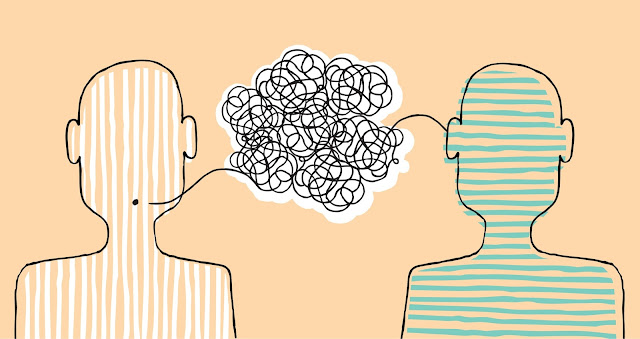Understanding Communication
To preface a discussion regarding how I understand communication, I feel it would be beneficial to give some insight to my personal background. I am a dual national, French and American, who has lived in over 10 different countries in Africa, Asia, Europe, and North America. My mother is a public health doctor and nutritionist, and her work brought our family to many different parts of the world where hunger and malnutrition are the lead causes of death for impoverished men, women, and children. My father is an international school teacher, and as such, was able to easily pick up and move to wherever my mother's next post would be. As a child with such a unique upbringing, I had a very rare, and very deep, understanding of the world around me, and its problems.
The thing that struck me the most about the shocking conditions of people in third-world countries was the honest ignorance of my Western friends and their families when it came to these realities. As a child, and later as a teenager, I couldn't believe that some people could be so frivolous with money and waste food so easily when others across the globe (my neighbors in Mali, for example) were dying of starvation. As I grew up, I realized that this behavior was not based on selfish or greedy grounds, but on the plain and simple LACK of knowledge that others had, not just less, but, in some cases, absolutely NOTHING.
Because of this problem, communication, to me, had always meant "letting the developed world know what is happening in the under-developed world". Mind you, this has changed exponentially just with the birth of the internet (I was a preteen when we got dial-up). But, even when I moved to Sweden at 16 years old, I was still shocked by the little understanding of my peers about the rest of the world. Sure, there was some basic knowledge (kids in Africa are starving, etc.), but no real, concrete understanding of these issues. As such, when I began my undergraduate degree at Malmo University, Sweden, in International Relations, I envisioned myself taking my knowledge of international relations and combining it with communication of some sort to provide a concrete understanding of real world issues. I also wanted to do this in a way that did not desensitize audiences or depress them thoroughly, as both would ultimately deter any plans to have people (young people, especially) become more engaged in real-world issues.
When I started my MA degree at Colorado State University, however, my original conception of communication was completely challenged. All around me were students spouting off definitions I had never heard of, or considered. Journalism students were calling Personal Relations specialists "evil sell-outs", while PR students called journalists "story-seekers and sensationalists". Weren't we all just trying to save the world, I thought? As it turns out, no, we weren't.
Like all things in life, PR, Journalism, and Communication have many different facets and uses. Some are good, some are bad, some are just useful, and some are completely useless. When I expressed my personal understanding of these things, others were intrigued and curious, as they had never thought about things the way I had, and vice versa. Ultimately, the people we are and the field we come from, or the field we want to go into, determine how we see communication, and more importantly, how we use it. In this sense, it is important to have our own personal understandings, but even more important to understand the views of others to create a synthesis of effective communication techniques and strategies in the world so that the full potential of communication goals can be met.
'Till next time,
-Miss Communication











Post A Comment
No comments :